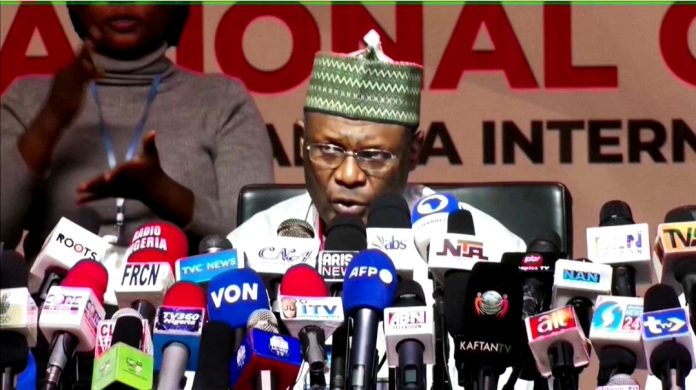Nigeria’s ruling party candidate, Bola Tinubu, was declared president-elect of Africa’s most populous nation in the early hours of Wednesday after a weekend election that the main opposition parties have disputed.
Tinubu, a former governor of Lagos state, will take over leadership of a country grappling with Islamist insurgencies in the northeast, armed attacks, killings and kidnappings, conflict between livestock herders and farmers, cash, fuel and power shortages, and perennial corruption that opponents say Buhari’s party has failed to stamp out, despite promises to do so.
The Independent National Electoral Commission (INEC) said Tinubu garnered 8.79 million votes, ahead of main opposition challenger Atiku Abubakar’s 6.98 million votes. Peter Obi, an outsider popular with younger voters, garnered 6.1 million votes.
Nigerian electoral law says a candidate can win by getting more votes than their rivals, provided they get 25% of the vote in at least two-thirds of the 36 states and the federal capital Abuja, which Tinubu did.
Opposition parties rejected the results as the product of a flawed process, which suffered multiple technical difficulties owing to the introduction of new technology by INEC, and on Tuesday called on its chairman, Mahmood Yakubu, to resign.
Tinubu asked voters to elect him on his track record during his two terms as Lagos state governor at the turn of the century, during which he reduced violent crime, improved the city’s traffic jams and cleaned up rubbish.
The 70-year-old has, however, sometimes appeared frail in public, slurring his speech and answering questions with platitudes, and skipping several campaign events, leaving some to doubt how effective he would be.
Obi’s campaign attracted young people and urban, more educated voters fed up with corrupt politics of the past, the two parties that have represented it since the end of military rule in 1999 and old men who have tended to dominate them.
Source: Reuters













